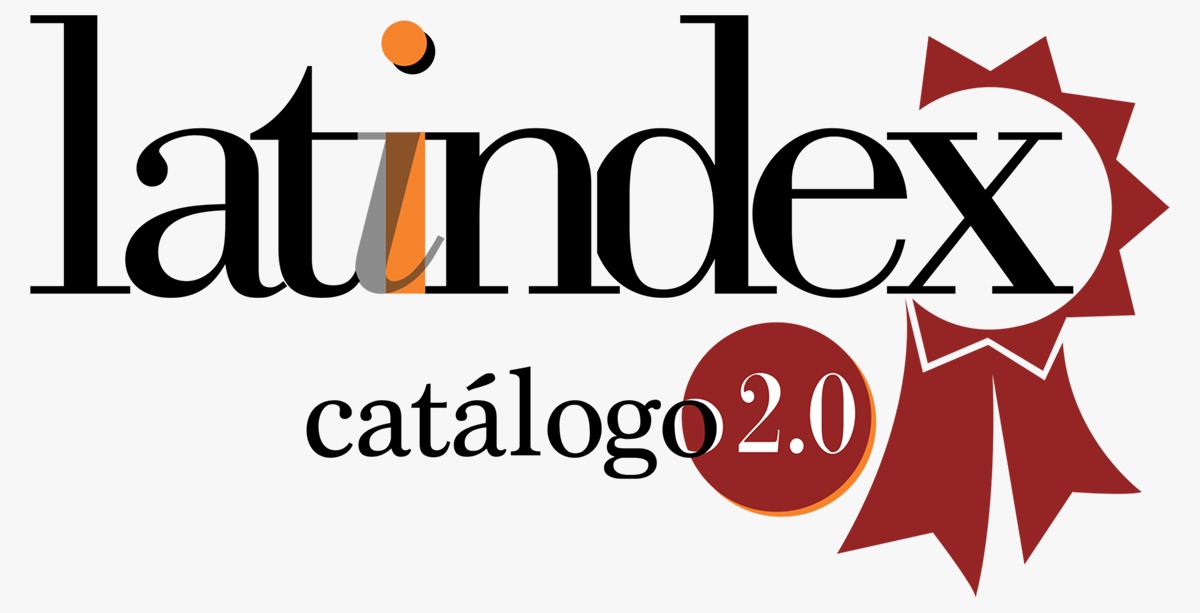Institutional climate and evaluation of educational quality at IE Sagrada Familia APOVA. Ancon. Lima
DOI:
https://doi.org/10.47865/igob.vol6.n23.2023.298Keywords:
Quality, climate, educational, institutionalAbstract
The relevance of carrying out a study on the relationship between the institutional climate and the evaluation of educational quality is becoming a necessity, given the poor results in ECE tests of public school students in Peru, especially in EI. The Holy Family in Ancón, Lima. . It is not unknown that teamwork, intra and interpersonal relationships, dialogue, empathy and more are relevant. Through a quantitative approach, hypothetical deductive method, an ordinal, cross-sectional level, with a correlational design using two questionnaires with 20 indicators validated by three expert juries and a reliability measure with Cronbach's alpha coefficient, to collect the information and a sample of 34 teachers we reached conclusions regarding this relationship.
The data analysis is carried out through descriptive and inferential statistics for the hypothesis test, giving as a result that there is a significant relationship between the two variables in question, in that teachers have a deficient level regarding their educational quality, so important. for a good institutional climate on which ultimately depend the quality of the services that EI offers.
Downloads
References
Albañil. (2015). El clima laboral y la participación en la Institución Educativa Enrique López Albújar de Piura. Piura, Perú: Tesis de Maestría en Educación con Mención en Gestión Educativa. Universidad de Piura. Facultad de Ciencias de la Educación.
Alcover. (2016). Introducción a la Psicología del Trabajo. Edit. Mc. Graw Hill., 589.
Alcover. (2017). Introducción a la Psicología del Trabajo. Edit. Mc. Graw Hill. España. 601 pp .
Altunova, N., & Kalman, M. (2020). Factors affecting classroom teachers’ job performance: a qualitative-dominant analysis with q-sorting [Factores que afectan el desempeño laboral de los maestros de aula: un análisis cualitativo dominante con clasificación Factores que afectan. Factors affecting classroom teachers’ job performance: a qualitative-dominant analysis with q-sorting [Factores que afectan el desempeño laboral de los maestros de aula: un análisis cualitativo dominante con clasificación Factores que afectan.
Andina. (2019). Clima Institucional en un centro educativo.
Andres, L., De la Cruz, J., Gonzaga, M., Rodriguez, I., Sanchez, J., & Ortiz, A. (2021). Teachers’ Level of Adaptability and Performance: Their Response to the Rapidly Transforming Academic World. International Journal of English Literat.
Andúgar, A., & Cortina, P. (2018). EFL Teachers’ Reflections on Their Teaching Practice in Spanish Preschools: A Focus on Motivation. Preschool Bilingual Education , 25, 219–244.
Arana, I. (2008). Calidad Educativa, Justicia y bienestar.
Astráin, S. (2019). Calidad educativa: la motivación docente como elemento clave. Pamplona, España: Universidad de Navarra. https://dadun.unav.edu/bitstream/10171/58269/1/Sara%20Astr%C3%A1i n.pdf
Bardach, L., Klassen, R., & & Perry, N. (2022). Teachers’ Psychological Characteristics: Do They Matter for Teacher Effectiveness, Teachers’ Well-being, Retention, and Interpersonal Relations? An Integrative Review. Educational Psychology Review (Vol. Educational Psychology Review). Educational Psychology Review. https://doi.org/https://doi.org/10.1007/S10648-021-09614-9
Barni, D., Danioni, F., & Benevene, P. (2019). Teachers’ Self-Efficacy: The Role of Personal Values and Motivations for Teaching [Autoeficacia de los docentes: el papel de los valores personales y las motivaciones para la enseñanza]. Frontiers in Psychology, 10(1645). https://doi.org/doi:https://doi.org/10.3389/fpsyg.2019.01645
Bernate, J. G. (2020). Satisfacción de la Calidad Educativa en Educación Superior. PODIUM, 38, 37–50.
Boom, A. (2010). Educación y Bicentenario: la inquietud del presente.
Briones, M. (2017). The influence of the institutional environment in the quality of education of the School Ramón Castilla N° 063, Cajamarca. Cajamarca, Perú.
Caba. (2017). satisfacción laboral y los factores predictores sobre los magistrales.
Carmen, R., Olga, B., & Beatriz, M. (2022). Socio-Emotional Competence and Self-Efficacy of Future Secondary School Teachers. Education Sciences, 12(3),(161). https://doi.org/https://doi.org/10.3390/EDUCSCI12030161
Casanova, J. (2017). Teacher Performance Evaluation: The Importance of Performance Standards [Evaluación del desempeño docente: la importancia de los estándares de desempeño]. International Journal for Cross-Disciplinary Subjects in Education (IJCDSE), 8(1)(2973 - 2981). https://doi.org/http://dx.doi.org/10.20533/ijcdse.2042.6364.2017.0404
Chiavenato, I. (2009). Comportamiento organizacional. Comportamiento organizacional.
Cleary, T., Kitsantas, A., Peters, E., Lui, A., McLeod, K., Slemp, J., & Zhang, X. (2022). Professional development in self-regulated learning: Shifts and variations in teacher outcomes and approaches to implementation. Teaching and Teacher Educati(111). https://doi.org/https://doi.org/10.1016/J.TATE.2021.103619
Concytec. (2020). Reglamento De Calificación, Clasificación Y Registro De Los Investigadores Del Sistema Nacional De Ciencia, Tecnología E Innovación Tecnológica . Reglamento Renacyt, 2-12.
Darmaji, D., Mustiningsih, M., & Arifin, I. (2019). Quality Management Education in the Industrial Revolution Era 4.0 and Society 5.0. Atlantis Press(565– 570). https://doi.org/https://doi.org/10.2991/ICET-19.2019.141
De Souza, A. P. (2018). SATISFACCIÓN LABORAL Y ENGAGEMENT EN TRABAJADORES DE UN COLEGIO PRIVADO DEL DISTRITO DE SAN MIGUEL – LIMA 2018. Lima.
Edwards, V. (1991). El concepto de calidad de la Educación. Santiago: UNESCO.
Fischman. (2000). El espejo de un líder. Lima: El Comercio – Universidad Peruana de Ciencias Aplicadas.
Galicia. (2016). La calidad educativa dentro del sector educación. La calidad educativa dentro del sector educación, 1.
Gamage, K., Pradeep, R., Najdanovic, V., & Gunawardhana, N. (2021). Academic Standards and Quality Assurance: The Impact of COVID-19 on University Degree Programs [Estándares académicos y garantía de calidad. el impacto de COVID-19.
García, S. B. (2020). debate la educación superior y la ciencia en México: recuperar preguntas clave. Investigación Educativa, 21, 02, 1-4.
Goncalves, A. (2000). Fundamentos del clima organizacional . Sociedad Latinoamericana.
Hartinah, S., Suharso, P., & Umam, R. (2020). Teacher’s performance management: The role of principal’s leadership, work environment and motivation in Tegal City, Indonesia. Idonesia.
Hendrawijaya, N. (2020). El clima institucional.
Hernández, R., Fernández, C., & Baptista, M. (2014). Metología de la Investigación. México: sexta edición.
Hernández, S., & Mendoza, C. (2018). Metodología de la investigación, las rutas cuantitativa cualitativa y mixta. México.
Kahr. (2017). Clima Institucional Escolar y Gestión Directiva. Revista Abierta Interamericana, 1.
Koontz, H., & Weihrich, H. (2016). Definición de Eficiencia. Definición de Eficiencia, 1.
Koontz, H., & Weihrich, H. (2016). Definición de la Eficiencia. Definición de la Eficiencia.
Marín, V. (2019). EDMETIC. Revista de Educación Mediática y TIC. Educación Mediática y TIC, Vol 8, No 2.
Martinic. (2012). Definición de la dimensión equidad.
Mendoza. (2017). Clima organizacional y rendimiento académico en estudiantes del tercero de secundaria en una institución educativa de ventanilla. Lima. Lima, Perú.
MINEDU, (. d. (2016). Participación Clima Institucional para una organización Escolar Efectiva.
Özgenel, M., & Mert, P. (2019). Antecedent of Teacher Performance: Occupational Commitment. https://www.researchgate.net/pub.
Palacios, F., & Vargas, F. (2015). Es el ambiente interno favorable de trabajo en el que se encuentran las personas y que tienen características propias para un buen desempeño en todas las laborales de trabajo.
Rimaicuna. (2017). Calidad Educativa de la institución educativa particular Carlos Gagne.
Rivera Moreno, C., Cegarra Cegarra, O., Vergara, H., & Matos, M. (2016). Clima Organizacional en el Contexto Educativo. Revista Scientific, vol. 1, núm. 2, pp. 316-339.
Rodriguez. (2016). Dimensiones de la Calidad Educativa. Dimensiones de la Calidad Educativa, 3.
Rodriguez, M. (2018). Gestión y calidad educativa en los servidores de la institución educativa N° 80392 Andrés Salvador Díaz Sagastegui. Chepén - 2017. Trujillo, Perú.
Sandoval. (2017). Clima Organizacional en los profesores Investigadores de una institución de educación superior. Actualidades.
Senol, H., & Dagli, G. (2017). Increasing Service Quality in Education: Views of Principals and Teachers. EURASIA J Math Sci Tech Ed, 2017 - Volume 13 Issue 8, pp. 4857-4871.
Simón, A. (2008). “Diccionario de Economía”, Tercera Edición. Andrade.
Skedsmo, G., & Huber, S. (2019). Top-down and bottom-up approaches to improve educational quality: their intended and unintended consequences. . Educational Assessment, Evaluation and Accountability 2019, , 31(1)(1–4). https://doi.org/https://doi.org/10.1007/S11092-019-09
Suryani, A., Tirtowalujo, I., & Masalam, H. (2020). Science Teaching Practices in Indonesian Secondary Schools. Preparing Indonesian Youth, 4(21– 47). https://doi.org/https://doi.org/10.1163/9789004436459_002
UNESCO. (2015). Perspectivas de UNESCO y la OEI.
Van, T., & Decramer, A. (2018). Line managers’ AMO to manage employees’ performance: the route to effective and satisfying performance management. The International Journal of Human Resource Management, 29(22)(3093–3114).
Waeyenberg, T., Peccei, R., & Decramer, A. (2020). Performance management and teacher performance: the role of affective organizational commitment and exhaustion. The International Journal of Human Resource Management, 33(4)(623–646)
Wiggan, G., Smith, D., & & Watson, V. (2020). The National Teacher Shortage, Urban Education and the Cognitive Sociology of Labor. The Urban Review, 53(1)(43–75). https://doi.org/https://doi.org/10.1007/S11256- 020-00565-Z
Xuehui, A. (2018). Teacher Salaries and the Shortage of High-Quality Teachers in China’s Rural Primary and Secondary Schools. Chinese Education & Society, 51(2)(103–116).
Yansyah, M. (2022). The Effectiveness of Teacher Performance Management in the Implementation of Student Learning. Journal Corner of Education, Linguistics, and Literature, 1(4)(227–234).
Yousif, A., & Ahmed, M. (2020). The effect of performance appraisal on job performance in governmental sector: The mediating role of motivation [El efecto de la evaluación del desempeño en el desempeño laboral en el sector gubernamental: el papel mediador de la motivación. Management Science Letters, 10(9)(2077- 2088). https://doi.org/http://dx.doi.org/10.5267/j.msl.2020.2.003
Downloads
Published
How to Cite
Issue
Section
License

This work is licensed under a Creative Commons Attribution-NonCommercial-ShareAlike 4.0 International License.
Esta obra está bajo una licencia internacional Creative Commons Atribución-NoComercial-CompartirIgual 4.0.
















